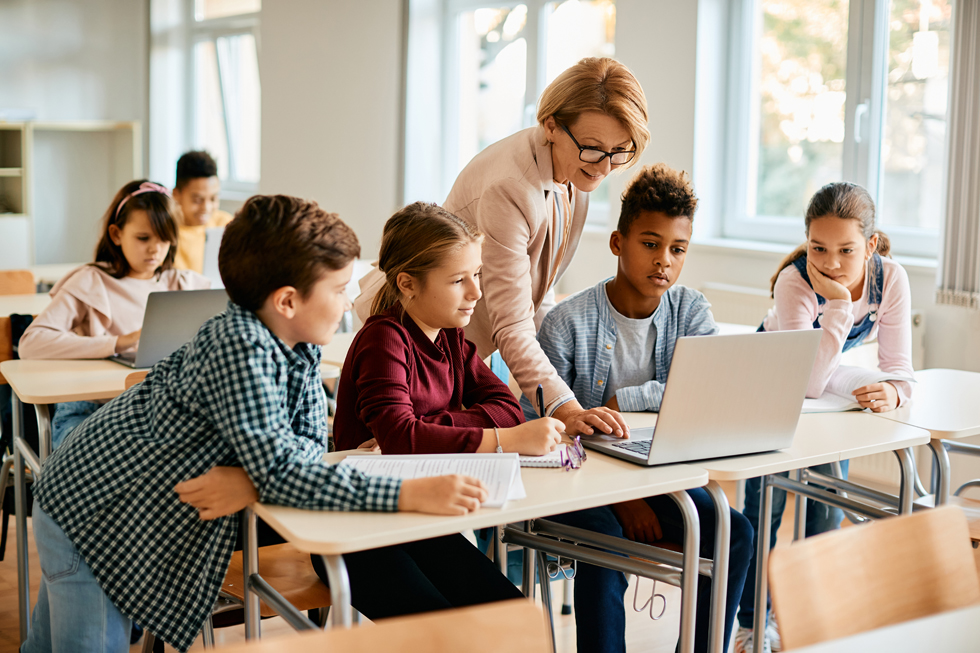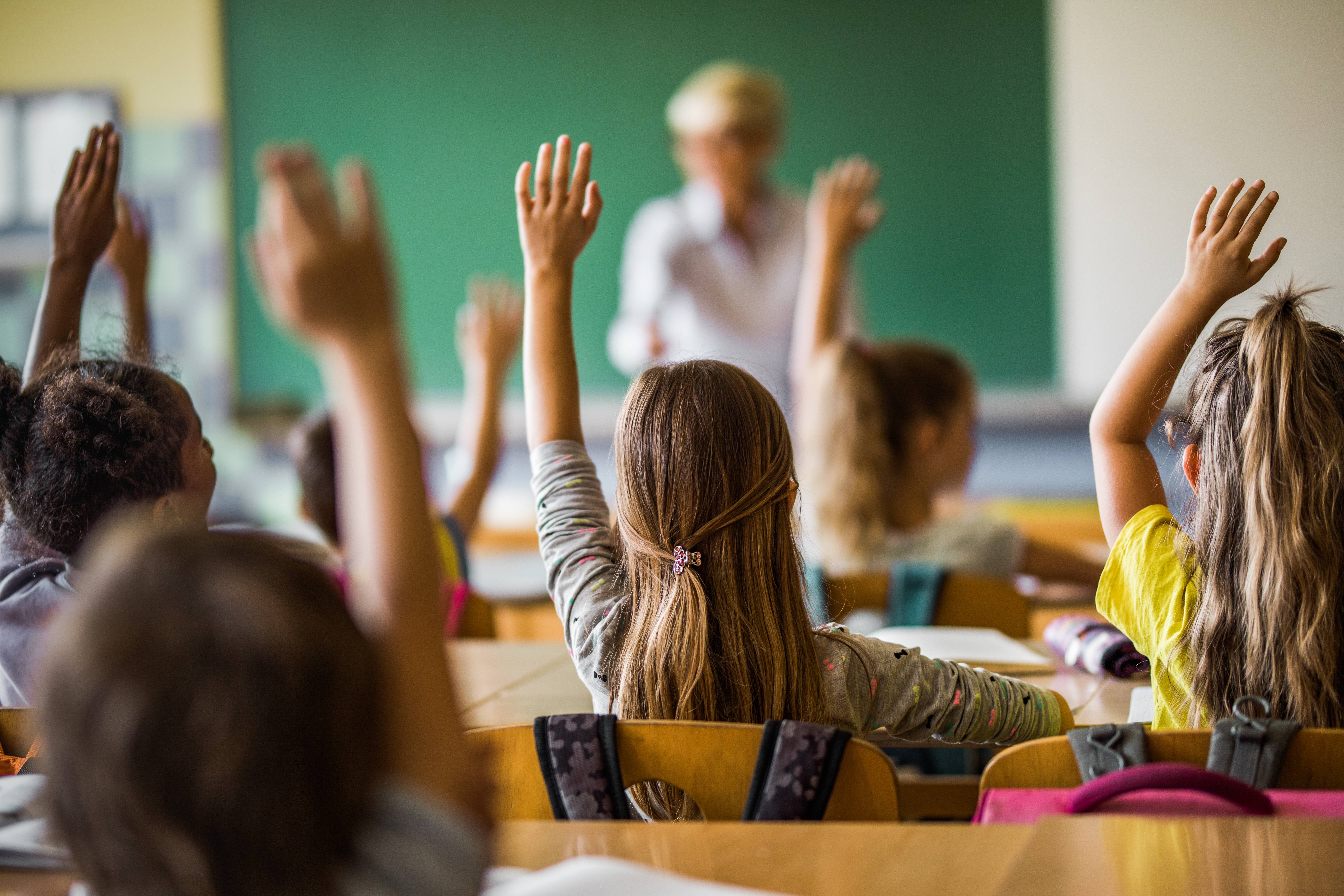The Function of Parents and Teachers in the Initiative to Save Temecula Schools
Wiki Article
Comprehending the Relevance of Institutions in Youngster Growth and Area Development
Colleges' involvement with neighborhood communities with service-learning initiatives reinforces the bond between families and instructional institutions. This cooperative partnership highlights the significance of colleges in supporting energetic citizenship and lifelong discovering routines.Academic Success
Academic success acts as a foundation of youngster development, providing the foundation upon which future knowing and success are developed. Institutions play an essential role in promoting this scholastic development, providing organized settings where kids can acquire necessary understanding and cognitive skills. Standard educational program make sure that pupils gain proficiency in core topics such as maths, science, and language arts, which are essential for both greater education and learning and expert chances.Along with passing on basic academic skills, colleges additionally cultivate crucial thinking, analytic capacities, and intellectual interest. These cognitive competencies are important for navigating intricate real-world scenarios and adapting to the ever-evolving needs of the modern work environment. Teachers, as facilitators of knowing, utilize diverse pedagogical approaches to deal with diverse discovering designs, consequently making the most of private trainee potential.
Furthermore, academic success is carefully connected to self-esteem and motivation. Youngsters who experience scholastic success are a lot more likely to create a positive self-concept and a lifelong passion for understanding. Schools additionally offer different sources, such as collections and modern technology, which further improve the educational experience and prepare trainees for a technically advanced culture.
Social Ability Growth
Beyond academic accomplishment, the function of schools in social skill advancement is vital. Schools work as a primary place for children to learn and exercise essential social abilities such as communication, conflict, and teamwork resolution. In the organized environment of a classroom, trainees connect with peers, teachers, and various other institution staff, providing numerous opportunities to establish these vital abilities.Efficient social ability growth in schools is assisted in with group activities, joint jobs, and extracurricular programs. These communications aid trainees recognize social norms, construct compassion, and promote a feeling of area. As an example, team tasks teach pupils just how to work with each other in the direction of an usual goal, pay attention to various point of views, and navigate disputes constructively.

The growing of social abilities during college years lays a structure for future personal and expert relationships. Save Temecula Schools. As trainees develop, the capability to successfully team up and communicate comes to be progressively crucial, emphasizing the school's critical function in holistic kid development
Direct Exposure to Diversity
Direct exposure to variety in schools is essential to cultivating a comprehensive way of thinking and expanding pupils' perspectives. Schools function as a microcosm of the more comprehensive culture, and coming across diverse societies, languages, and socioeconomic histories within this atmosphere outfits pupils with essential abilities for navigating an increasingly globalized world. This direct exposure encourages empathy, lowers prejudices, and promotes shared regard among peers.Diverse classrooms linked here likewise enhance social and cognitive development. Research shows that trainees who connect with peers from different backgrounds exhibit far better problem-solving abilities and imagination. They learn to value various viewpoints, which enhances class discussions and promotes a much more vibrant discovering experience. This understanding of diversity prepares pupils for future work environments that value modern proficiency.

Area Interaction
The benefits of diverse classrooms extend beyond the college walls, cultivating a strong sense of community interaction among students. By communicating with peers from different cultural, socioeconomic, and ethnic backgrounds, students obtain a broader perspective and a gratitude for diversity. This exposure urges them to come to be energetic residents who want to contribute favorably to their areas.Colleges that stress neighborhood interaction blog typically integrate service-learning jobs, which allow students to address real-world problems while applying scholastic abilities. These tasks not only boost pupils' understanding of their coursework however likewise instill a feeling of duty and compassion. Collaborations between schools and neighborhood organizations offer pupils with chances to get involved in community occasions, even more strengthening their function as proactive area members - Save Temecula Schools.
In addition, adult and community involvement in institutions strengthens the bond between educational establishments and the communities they offer. Through these initiatives, institutions play a critical role in supporting community involvement and fostering social development.
Lifelong Knowing Routines
Creating lifelong discovering practices is vital for a kid's constant development and versatility in an ever-changing world. Schools play a pivotal role in instilling these habits by developing a setting that fosters curiosity, essential thinking, and a love for knowledge. Through extracurricular activities and varied curricula, instructors encourage trainees to explore various subjects, evaluate info critically, and apply their finding out to real-world scenarios.
In addition, colleges offer a structured setting where youngsters can establish self-discipline and time monitoring abilities, both of which are critical for continual understanding. By highlighting the relevance of setting goals, reviewing progress, and adjusting strategies, universities prepare trainees to browse the intricacies of adult life, more helpful hints ensuring they stay long-lasting students and contributors to culture.
Verdict
In verdict, institutions are necessary in promoting child growth and area growth by providing settings helpful to academic success, social skill development, and direct exposure to diversity. Inevitably, institutions cultivate lifelong understanding routines, equipping people with the necessary knowledge and abilities to contribute favorably to society.In the organized atmosphere of a class, students engage with peers, teachers, and other school personnel, offering many possibilities to establish these essential capacities.
In essence, direct exposure to diversity within institutions not just enriches specific trainees yet also enhances the social textile of the community as a whole.
The benefits of varied class prolong past the school walls, promoting a solid feeling of community interaction amongst trainees.Colleges that emphasize community interaction usually incorporate service-learning jobs, which enable pupils to resolve real-world troubles while applying academic skills. Partnerships in between colleges and local organizations give students with opportunities to participate in community occasions, further solidifying their role as proactive neighborhood members.
Report this wiki page